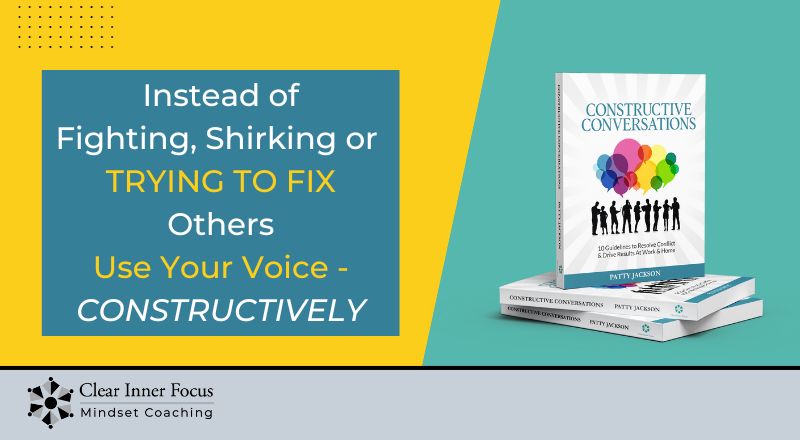
The Nature of Conflict in Relationships
In our relationships, conflicts and disagreements are inevitable. Whether it’s with our partners, family members, friends, or colleagues, we often find ourselves caught up in arguments and fights. But have you ever wondered why these conflicts arise in the first place? What drives us to engage in these battles and the desire to fix others?
The Importance of Understanding Conflict and the Desire to Fix Others
Understanding the root causes of fights and the desire to fix others is crucial for fostering healthy relationships and finding effective resolutions. By delving into these underlying factors, we can gain insight into our own behaviors and motivations, as well as develop strategies for better communication and conflict resolution.
Exploring the Reasons Behind Fulfilling Interactions and Conflicts
In the following video, we will explore the various reasons behind fulfilling interactions, and why fights and the innate human inclination to fix others sometimes appear. We will examine thoughts, emotions, and personal goals to shed light on this complex aspect of human interaction.
Let’s dive in and explore the underlying reasons behind our conflicts and what motivates us to either disregard or attempt to fix those around us. Additionally, I will provide you with 10 guidelines to effectively resolve conflicts and achieve positive outcomes both at work and at home. By gaining a deeper understanding of these root causes and what to do to resolve them, we can develop more harmonious relationships built on empathy, understanding, and mutual growth.
Stop Fighting, Shirking or Trying to Fix Others with 10 Constructive Conversation Guidelines
Constructive Conversations Guidelines
- Begin conversations with your desired result in mind.
- Do not begin a conversation when you are upset.
- Use The Clear Inner Focus Table™* to clear your stress and get focused on the end-result you want.
- Schedule time for a Constructive Conversation whenever you want to build connection, work on an issue, or achieve an objective. (Set aside time for the conversations others schedule with you.)
- Communicate to gain understanding, find a solution, and move forward.
Do not:
- Communicate to prove right and wrong.
- Communicate to get what you want right away.
- Assume you know what the other person is thinking.
- Focus on kind or solution-based thoughts about yourself and others.
- Notice what you are thinking about yourself and others. If you find yourself grumbling about others or dwelling in the past problems, use the Forgiveness (Can’t You See) Tool. Painful thoughts affect your behavior & filter what you see.
- Use your words to speak kind thoughts out loud.
- Be responsible. Expect others to be the same.
- Tend to the things you are responsible for. Give others reasonable time and space to do the same.
- For clarity, use the Define Your Lane of Responsibility Tool*.
- Let others achieve results their way. If their way breaks an agreement or impedes your ability to take care of yourself or enjoy your life, have a Constructive Conversation. Communicate to gain understanding and create a win-win solution.
- Take the time to make plans you agree on
– win-win solutions. Be committed and stick to the plans you make or communicate and renegotiate a new plan before changing directions. - Be accountable. Follow through with your plans and agreements. Hold others accountable to do the same. The Define Your Lane of Responsibility Tool* helps provide the clarity you may need to do this.
TROUBLESHOOTING:
Expect mistakes. Embrace them as opportunities to grow individually and together. When mistakes are made:
- Forgive. Forgive yourself for not knowing and doing better back then or for putting yourself in the situation. Forgive others for not knowing a better way at that time either. Focus on what you learned and grow forward, applying what you now know.
- Make amends. Address the cause of your hurtful behavior – your thoughts, feelings, habits, or beliefs behind your actions. The Clear Inner Focus Table™* can help you do this. Practice doing things differently. This rebuilds trust in yourself and others.
- If someone has hurt you repeatedly or deeply, it is important to identify what you need to believe that they have addressed the root cause of their behavior, and then communicate these needs to them.
- Rebuilding trust takes repetition and time.
MAINTENANCE:
- Practice Self-Care. Knowing what you need and taking care of it is necessary to sustain your energy, remain solution-oriented, and be present in life. When you attend to yourself, you can optimize your life experiences. Looking after yourself is not only an act of self-love but also essential for overall health and wellbeing on all levels – mental, emotional, physical, spiritual and relationship wise.
*All tools bolded and underlined in this book can be found at:
https://clearinnerfocus.com/resources/client-resources/ password: normalhumanstuff
Embracing the Ongoing Practice of Healthy Conflict Resolution
In conclusion, embracing healthy conflict resolution practices is crucial for fostering more fulfilling relationships. Conflict is inevitable in any relationship, but how we handle it can make all the difference.
By defining the forward progress you would like to achieve from the result of a conversation, actively listening to each other’s perspectives and expressing our own thoughts and feelings respectfully, we can create an environment where conflicts are resolved in a constructive manner. This involves avoiding personal attacks and instead focusing on the issue at hand.
Furthermore, making and honoring plans or agreements with others in a crucial part of working relationships. Showing up in the agreements you make and holding others accountable to do the same is how we teach people how to treat us and maintain collaborative, safe, trusting relationships.
Lastly, it is important to remember that conflict resolution is an ongoing process. It requires patience, compromise, and a willingness to learn and grow together.
By incorporating these healthy conflict resolution practices into our relationships, we can cultivate stronger connections built on trust, respect, and understanding.
